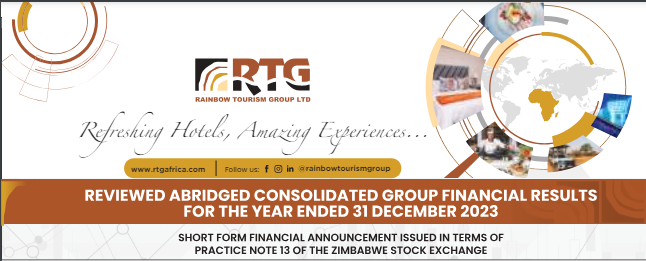
Afreximbank has pledged to assist Zimbabwe to develop a model law on factoring as the bank tips the sale of accounts receivables at a discount as a solution to plug the financing gap affecting small to medium enterprises (SMEs).
Speaking at a two-day regional conference on factoring, receivable finance and credit insurance which opened in Harare on Monday, Afreximbank executive vice president in charge of Intra African Trade Bank Kanayo Awani said factoring would plug the financing gap faced by SMEs.
"We affirm Afreximbank’s and the Africa Chapter of FCI’s support to partner Zimbabwe to develop a model law on factoring to attract investments into factoring while supporting SME finance," Awani said.
A model law on factoring that enabled countries to create a conducive legal and regulatory environment was developed in 2016 and has since been used by seven countries in passing factoring laws.
"For instance, the bank collaborated with the Central Bank of West African States to have a factoring law promulgated in 2020. Beyond the legislation, we are also working to ensure a facilitative regulatory environment for factoring to flourish. In Egypt, the Financial Regulatory Authority in 2018 issued Executive Decrees for the implementation of the Financial Leasing and Factoring Law," Awani said.
Afreximbank, she said, also contributed to the review of the Factoring Insurance Agreement issued by Export Credit Guarantee Company of Egypt and the Financial Leasing Guarantee Agreement.
Engagements on the enactment of factoring laws and regulations are ongoing with a number of countries, including among others, Nigeria, Senegal, Guinea Bissau, and Benin, Awani said.
Factoring volumes in Africa nearly doubled to €41,8 billion last year from €21,6 billion in 2017.
- Mavhunga puts DeMbare into Chibuku quarterfinals
- Bulls to charge into Zimbabwe gold stocks
- Ndiraya concerned as goals dry up
- Letters: How solar power is transforming African farms
Keep Reading
Research by the International Finance Corporation estimates that 44 million Micro, Small and Medium Enterprises (MSMEs) who make up 90% of the private sector employ almost 80% of Africans.
However, these SMEs are being starved of the capital required to grow and absorb the growing labour force, Awani said.
More than half of these SMEs require more finance than they can access to grow their businesses creating an estimated SME finance gap of US$331 billion in Africa, she said.
"We at Afreximbank wholeheartedly believe that factoring, a form of commercial finance whereby a business sells its accounts receivable at a discount, provides a viable and sustainable solution to address the SME financing gap and will help innovative SMEs grow and in turn support job creation and Africa’s structural transformation and trade development," Awani said.
"Factoring provides an important alternative to the other traditional financing sources available for SMEs such as bank loans, leasing, venture capital."
She said while factoring is globally acknowledged as an alternative form of financing to SMEs as evidenced by the €3.7 trillion global factoring volumes, a recent study by Afreximbank into the financing schemes employed by SMEs in Africa, showed that only 90 of the 2895 sampled (representing 9,2%), used factoring as a financing option. This, Awani said, shows that factoring has not yet taken off to the extent that it should, with Africa accounting for less than 1% of global factoring volumes. It also demonstrates the huge potential factoring holds for the continent, she said.
Reserve Bank of Zimbabwe deputy governor Jesimen Chipika said there exists opportunities on the African continent that favour the growth of the factoring business. There is a growing need for factors to address cross-border trade financing across the continent linked to the growth of Intra-African trade, she said.
"Limited availability of foreign exchange in most African countries, in addition to the need to diversify exports and sources of foreign exchange earnings, including ongoing industrialisation and value-addition programmes, not only provide opportunities for supply chain financing and factorable transactions, but also requires open accounts trade terms which are more relaxed than letters of credit, especially in the context of limited correspondent banking in the continent," Chipika said.
Neal Harm, FCI secretary general, said open account trade finance (factoring, supply chain finance) is one of the most important financial services that can assist the growth of SMEs and their local economy.
He said most emerging economies have a tendency to have an overreliance on hard assets such as equipment, land, or buildings, making it challenging for SMEs to obtain the necessary financing for their survival.
"But receivables are a very strong and reliable asset that is self-liquidating. Factoring, open account, and reverse factoring are tools that can generate working capital to allow SMEs to grow," Harm said.











